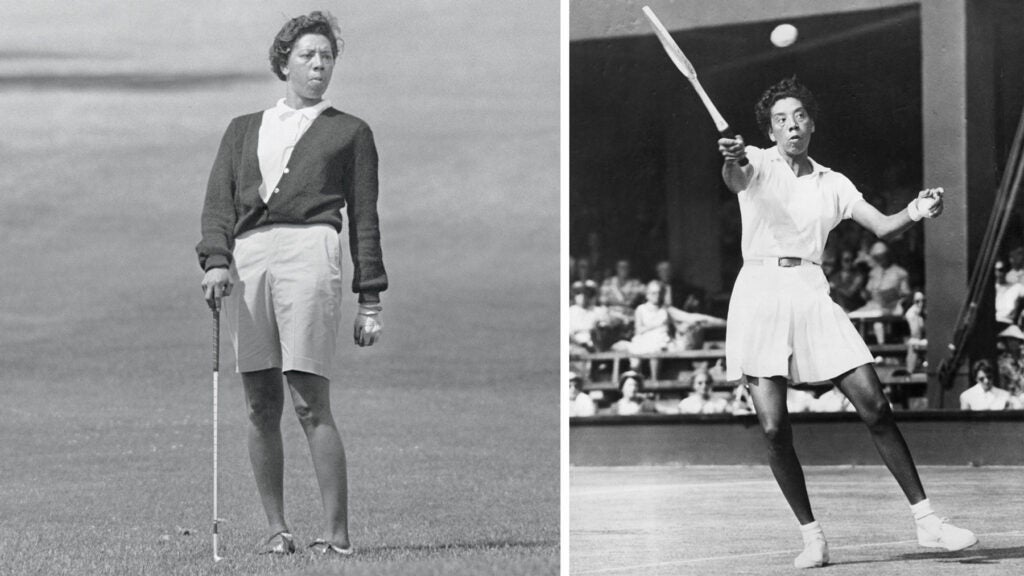Althea Gibson, the trailblazing athlete who won 11 Grand Slam tennis titles and later became the first Black golfer to compete on the LPGA, remains an unfamiliar name to many in the world of golf.
That was something something Ashley Brown wanted to change.
So Brown, an assistant professor of history at the University of Wisconsin at Madison who had long had an interest in Gibson, did something about it. She researched Gibson’s life, and wrote a book about it — and not just any book.
Brown’s biography, “Serving Herself: The Life and Times of Althea Gibson,” was recently awarded the USGA’s highest honor in publishing, the Herbert Warren Wind Award, which recognizes outstanding contributions to golf literature.
The seeds of Brown’s interest in Gibson were planted early in her life. Brown remembers, as a third-grader, coming across a book about Gibson during a trip to the library. She read it cover to cover. And while Brown herself didn’t take up golf until she graduated from college, the game was still very much a part of her childhood. Her uncle played, and golf was often on TV at home.
“My parents didn’t play golf, but my mom watched on weekends,” Brown told me the other day. “So pretty regularly I would hear Jim Nantz and the crew on CBS following the tournaments that were happening. The Masters was something that we paid attention to. I remember Fred Couples winning the Masters in 1992.”
As she prepared to attend graduate school at George Washington University, Brown was researching African Americans in golf. She came across a photo of Gibson.
“I knew about her tennis career, or really just the highlights. Her firsts in the game of tennis,” Brown said. “But I had no idea that she was the first African American woman to compete on the LPGA Tour.”
Brown’s interest was piqued.
“It was a fortuitous time,” she said. “This was the spring of 2010. I was preparing to move to Washington for graduate school. And I had also really fallen for the book “Golf and the American Country Club” the previous fall. And then of course I’m playing the game. So the game is really very much on my mind at that point.
Brown said browsing photos of Gibson in “Uneven Lies” by Pete McDaniel gave her an appreciation for Gibson’s tennis accomplishments.
“Crossed the color barrier in that sport, which obviously has a sort of particular history when it comes to African Americans and their opportunities to play,” Brown said. “And then she went just a few years after this and crossed the color barrier in golf. What were those experiences like? What kind of person would do this, not once, but twice? And what would she have gone through in both situations, and certainly in golf? So that was the moment when I just went stock still and thought, ‘You know what? This is something that I have to pursue.'”
Thus began Brown’s decade-plus exploration of Gibson, whose challenges and achievements still resonate with a modern audience, even two decades after Gibson’s death.
“I think about Gibson often,” Brown said. “She said, ‘If I see something and it appeals to me, I do it.’
“And when I think about Althea Gibson’s life, I think that she really gave an accurate assessment of who she was. She didn’t allow other people’s thoughts about who or what a tennis player is or who or what a golfer is stand in her way.”
As the Herbert Warren Wind Award honoree, “Serving Herself” will be on display at the USGA Museum and Library in Far Hills, N.J. You may purchase a copy here.
